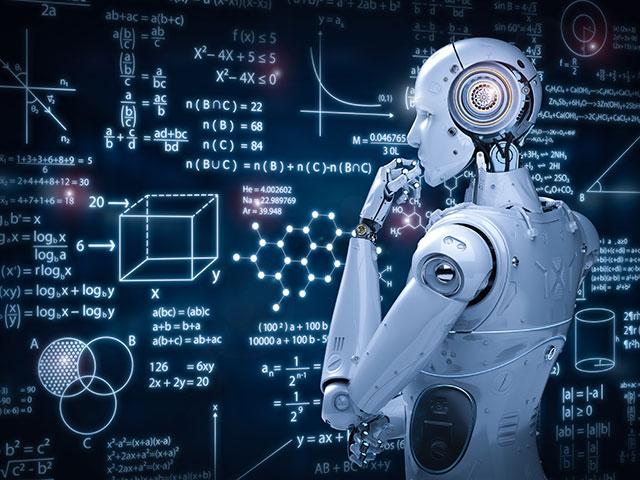With Generative Artificial Intelligence (Gen AI) continuing to be the headline act in the world of technology, you would be forgiven to think that machine learning, which many believed to be the jewel in the crown of AI not so long ago, has seemingly slipped under the radar.
Feb. 20, 2024
Despite giving up a lion’s share of the buzz to Gen AI, the field of machine learning continues to grow in leaps and bounds, expanding its footprint across multiple industries including healthcare, manufacturing and logistics, financial services, automotive, retail and e-commerce. With its rapid growth trajectory, machine learning is expected to become a $225 billion industry by 2030.
So, what is machine learning all about? In layman terms, machine learning is a sub-discipline of AI that uses data and algorithms to adapt, analyse, model, predict, and make informed decisions. By using a range of supervised, unsupervised and semi-supervised learning mechanisms, machine learning algorithms are able to identify patterns, generate insights, and solve critical problems.
Cutting-Edge Use Cases
From the content recommendation engines on streaming platforms to self-driving cars, fraud detection to the voice assistant on your phone, machine learning and its underlying technologies have become an indispensable part of our lives. What initially started out as niche proof-of-concepts has now evolved into easy-to-implement use cases that have the potential to make a transformative impact on businesses across the board like never before. It is of little surprise that CTOs and CIOs have their eyes set on the next big thing in machine learning.
Here are five machine learning use cases that organisations can adopt to drive automation, enhance user experience and boost operational efficiency:
1. Financial Advisory and Portfolio Management
Several financial management applications in the market today are powered by machine learning algorithms. Using these tools, organisations and individual customers can track costs, analyse expense patterns, and get smart recommendations on how to maximise savings and get higher return on investment. Recent game-changing developments include the rise of “robo-advisors”, which are automated financial advisors that use machine learning to customise the financial portfolio once the income, risk tolerance, and customer preferences are fed into the model. More and more financial institutions are using machine learning to drive informed decision-making on trading, asset management, and investments for their clients.
2. Recommendation Engines
One of the most widely used applications of machine learning is in the field of sales and marketing to conduct predictive analytics, generate product recommendations and influence customer purchasing behaviour. Be it on your social media feed or while shopping online, companies use machine learning algorithms to make content or product recommendations that are aligned to your consumption patterns. These algorithms also form the backbone of search engine optimisation (SEO) and tailored product marketing campaigns that appeal specifically to different demographics of users as they are aligned to their interests, preferences, and lifestyles.
3. Image Recognition
A key machine learning use case is image recognition – the process of detecting, processing, and clarifying different items, patterns, and objects on images. For example, by using image recognition, regulatory authorities can analyse pictures of banknotes and detect counterfeit notes from original ones. The ability to identify objects in images and categorise them is the underlying principle behind its wide-ranging applications across fields like marketing, medicine, e-commerce, construction, manufacturing and logistics.
4. Virtual Personal Assistant
Machine learning is the secret sauce behind the virtual personal assistants or voice assistants that people use on their phones or at home. No matter if it is typing an email, dialling a friend, or searching for information, these assistants make your lives easier by doing the bulk of your work for you. The communication is based on natural language processing, speech recognition, speech-to-text conversion or vice versa. On top of virtual assistants, machine learning is also the engine behind chatbots – widely used in the field of customer service to track responses, provide call-to-action buttons, and respond to customer enquiries in real-time. This significantly reduces human effort and time, optimises operations, and improves user experience.
5. Cybersecurity and Crime Detection
A key application of machine learning is in crime detection and bolstering cybersecurity. Machine learning models are used in anti-virus programs that detect and block malware from impacting enterprise servers. They are also used to classify phishing scams and detect unwarranted intrusions. Banks and financial services providers use machine learning to detect suspicious transactions and anomalies.
As reinforced by the above use cases, machine learning is instrumental in opening new avenues of growth for businesses by transforming operations, processes, and people. However, it is important to consider the ethical concerns regarding privacy, bias and discrimination, and a lack of legislative accountability regarding not only machine learning, but the wider sphere of AI. Only when these issues are ironed out can we fully unlock the unbridled potential of machine learning and its boundless possibilities.
The future promises to be exciting and eventful. The ability to successfully harness the power of machine learning will help organisations stay ahead of the curve – by enabling them to activate their tomorrow, today.
Related Articles

Transform Your Organisations Operations with Machine Learning
Our talent provides the expertise needed to help customers leverage natural language processing, image recognition, voice translation, automation tools, machine-learning algorithms, predictive engines and communication frameworks to boost productivity and generate next-level insight.